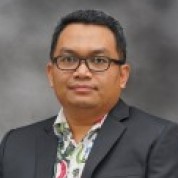Parallel Session 1.4
Interrogating [fiscal/public] Policies and Politics
1 February 2019
15:30 - 17:30 hrs.
| Room | : | Lotus Suite 5-7, FL. 22 |
Background :
As countries pursue their journey towards Universal Health Coverage (UHC), they face an increasing burden of noncommunicable diseases (NCDs), which are now the leading cause of death in the world, killing 40 million people each year and representing 70% of all annual deaths. Eighty percent of NCD — cancer, cardiovascular disease, chronic lung disease and diabetes —deaths occur in low- and middle-income countries, straining health care systems, contributing to poverty and posing a major barrier to development. Prevention and control of NCDs requires new approaches in the health sector, including using fiscal and regulatory policy instruments and other multisectoral interventions. Tobacco use, obesity and risky alcohol abuse are three leading risk factors for the development of NCDs that are amenable to use of such fiscal and regulatory policy instruments.
Given the high human and economic toll posed by NCDs, the prevention of these conditions should be a public health imperative under the UHC agenda. The statistics on these three risk factors are staggering:
• Tobacco use contributes to 7 million deaths annually.
• Obesity contributes to 4 million deaths annually.
• Alcohol abuse contributes to 3.3 million deaths annually, and well to injuries (e.g., due to road traffic crashes).
Existing evidence from around the world, particularly on tobacco taxation, shows that taxing these products can offer a “win-win" for countries strengthening their health systems by increasing both positive health outcomes and domestic resources to fund priority investments and programs. The public health impact, revenue generation and increased equity that could result from taxing specific products all point to the value of a redoubled and sustained effort to support the utilization of this fiscal policy as a global public good. However, this fiscal measure, is underused across the world. Nothing illustrates this more than gains achieved from taxing tobacco over the past couple decades in many countries (World Bank Group Global Tobacco Control Program website: http://www.worldbank.org/en/topic/tobacco). The lessons learnt from the use of tobacco taxes, for instance, can also serve for other innovative uses of fiscal policy instruments for public health.
Objectives :
The objective is to share country experiences and evidence on implementing tax and other fiscal policies for public health, with a focus on experiences from tobacco, alcohol and sugary drinks tax policies that optimally address the dual goals of tobacco, alcohol, and sugary drinks use reduction and domestic resource mobilization to fund priority investments and programs that benefit all. The session will also address barriers to implementation, and focus on “how countries” can best leverage fiscal policies to yield improved health outcomes for their citizens with the added benefit of bringing in additional revenue and enhancing equity.








